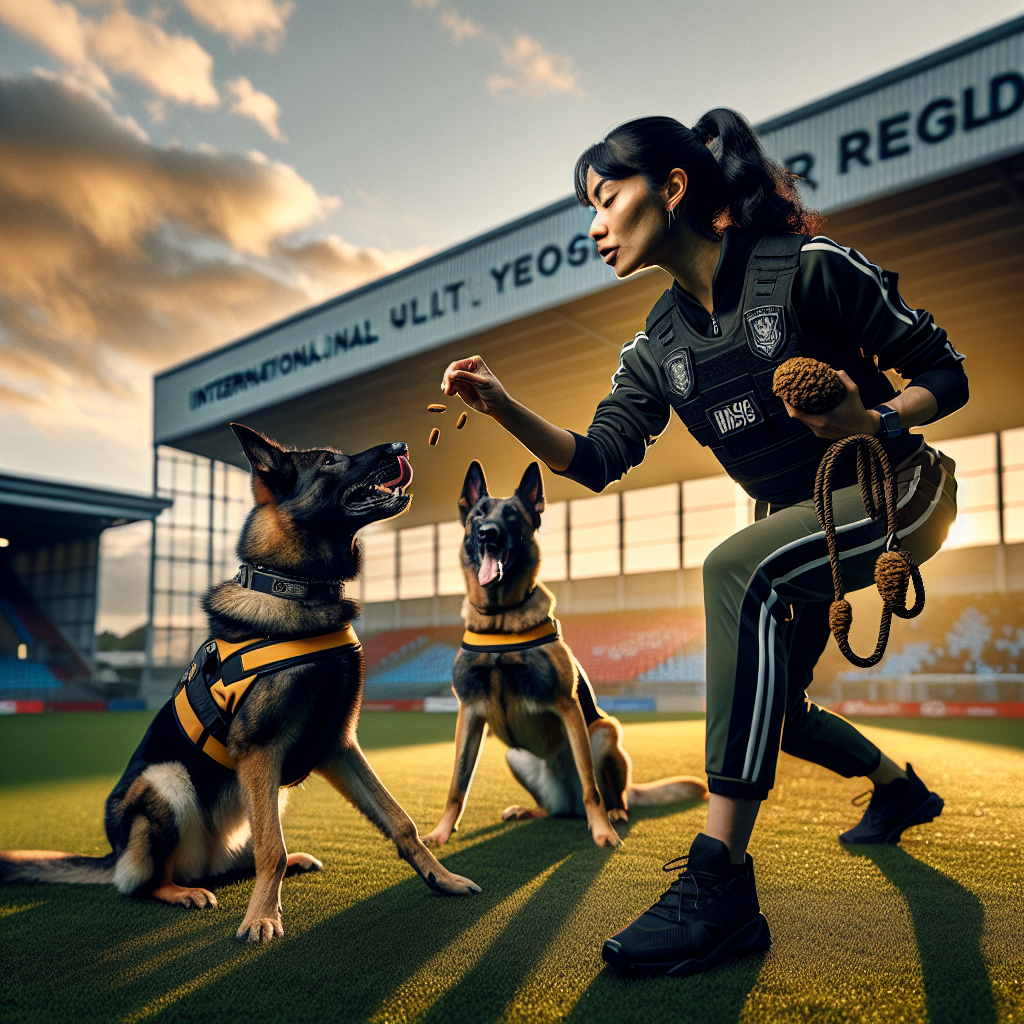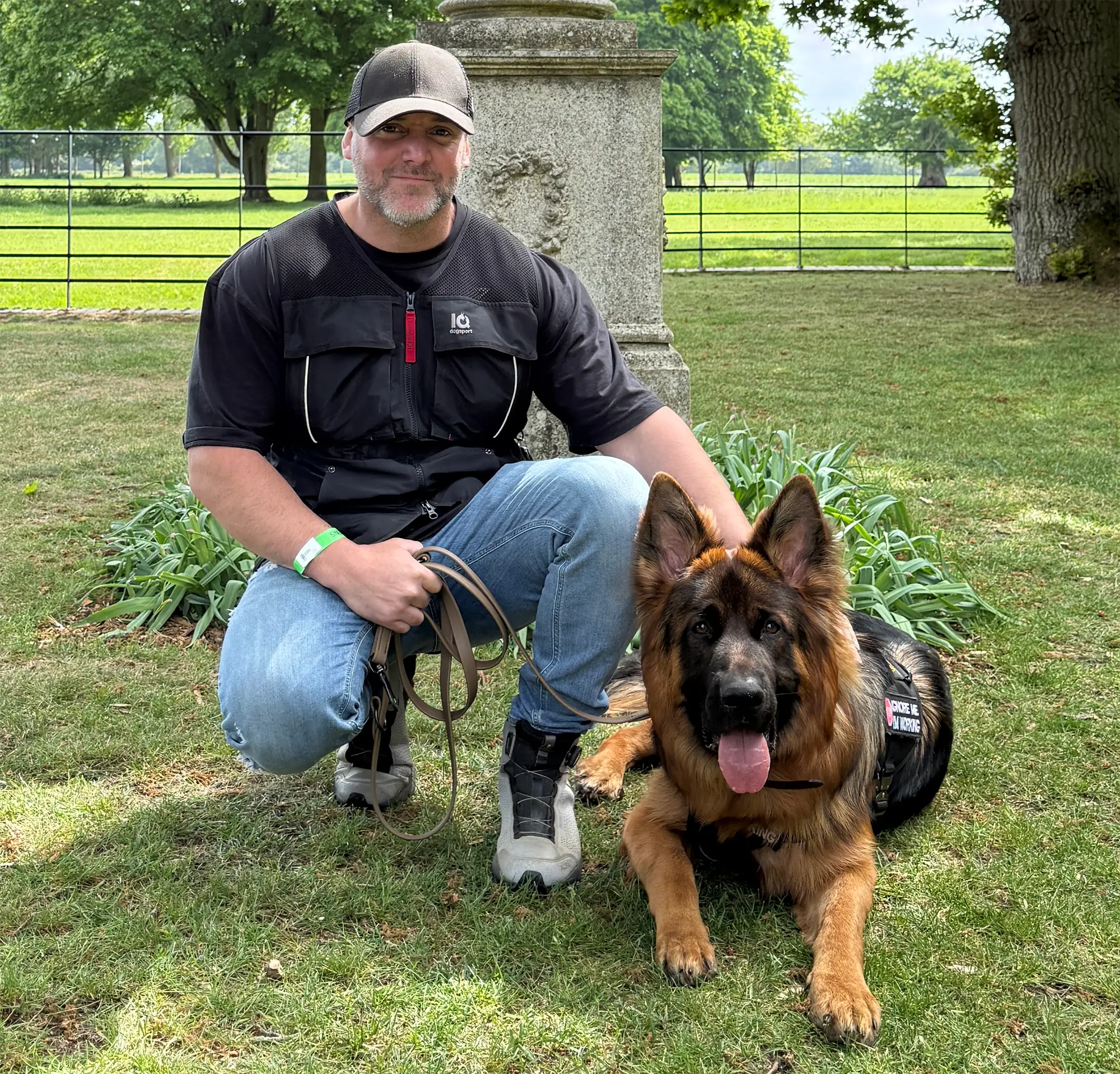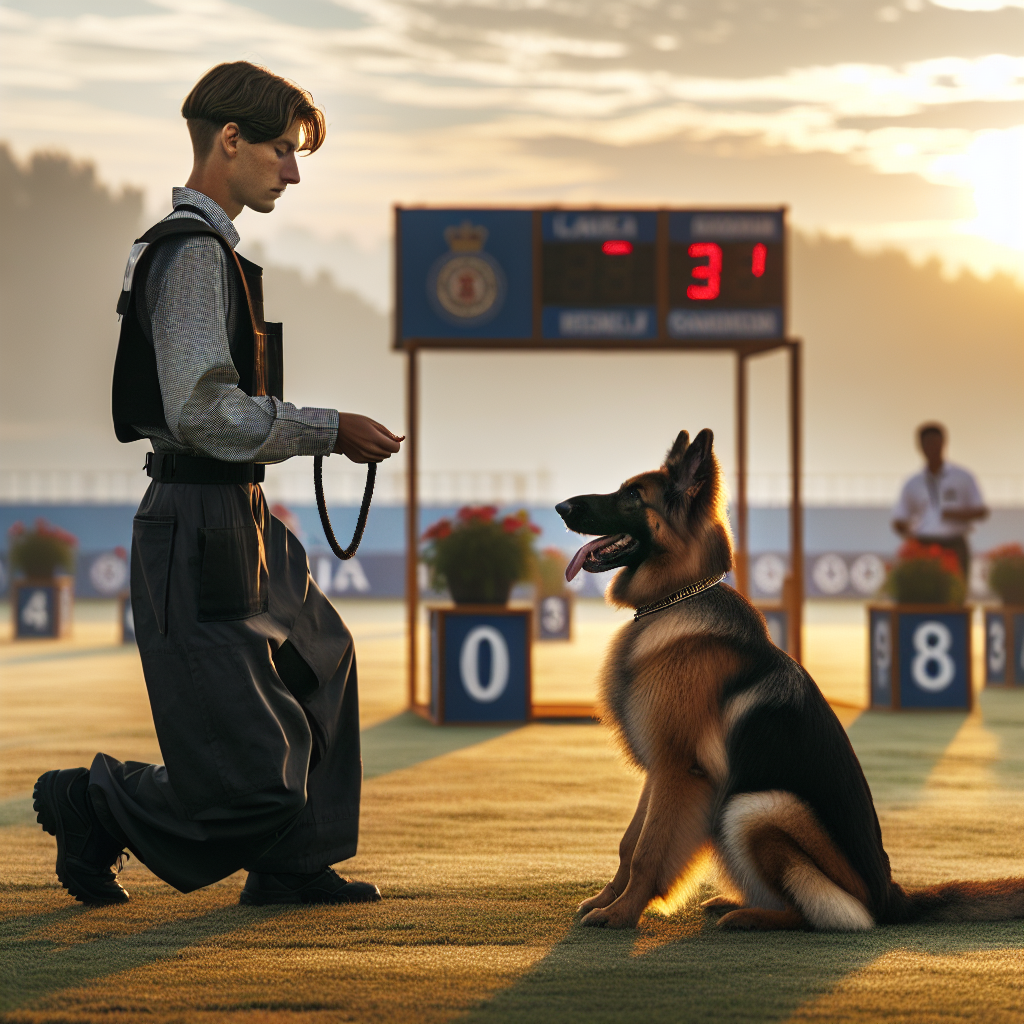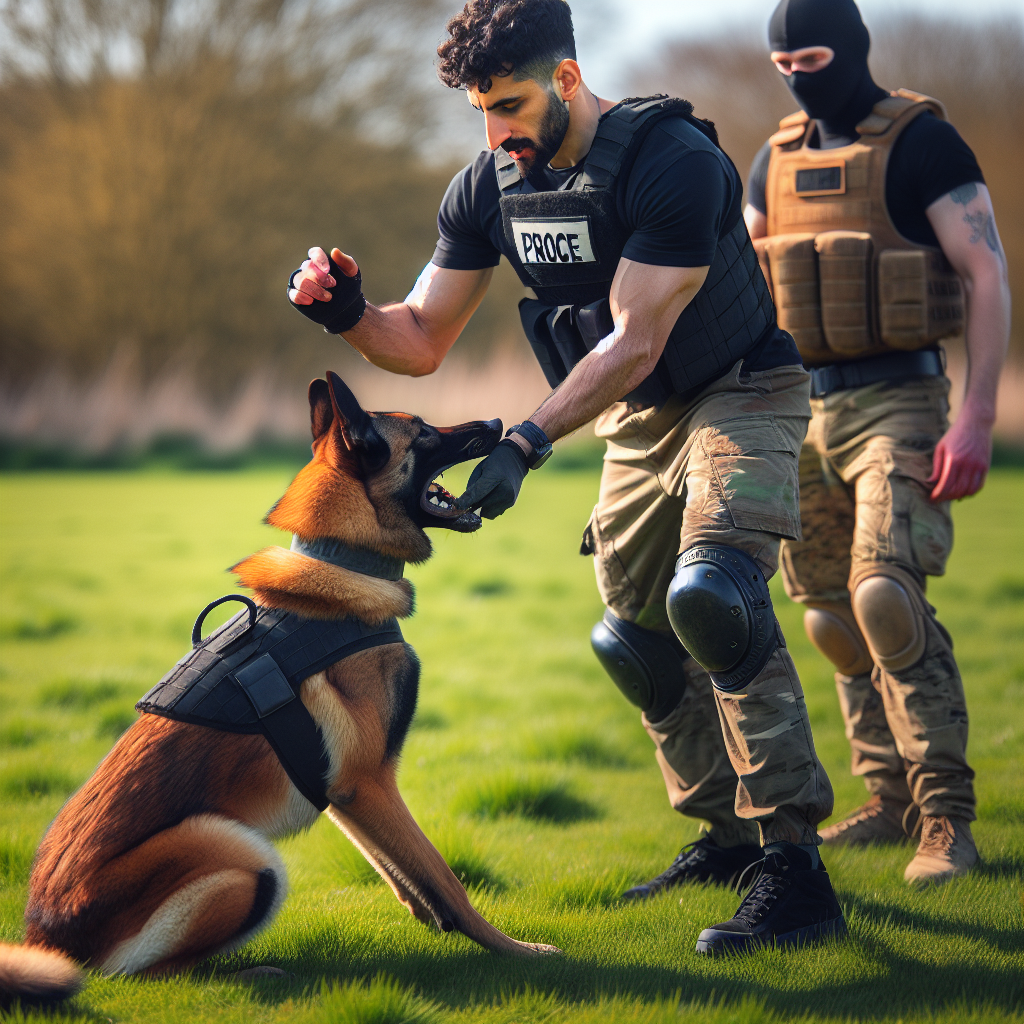Best Breeds for IGP Training

Best Breeds for IGP Training
Choosing the right dog sets the stage for long term success in IGP. If you want a dog that can track with focus, perform precise obedience, and show confident control in protection, breed matters. In this guide I will explain the best breeds for IGP training and how we assess and develop them at Smart Dog Training using the Smart Method. With certified Smart Master Dog Trainer support across the UK, you can make a confident decision and build a clear plan from day one.
IGP in Simple Terms
IGP is a three part working dog sport. The dog must track scent with accuracy, show calm and precise obedience, and work with control and confidence in protection. It rewards stable nerves, strong motivation, and clean training. Smart Dog Training builds these qualities through structured steps that keep the dog engaged, accountable, and safe in real life.
What Makes a Dog Suitable for IGP
Before we look at breeds, we must define the traits we value. Smart Dog Training selects for these qualities and then builds them through the Smart Method:
- Clear head under stress. The dog stays stable when pressure rises and recovers fast.
- Balanced drives. Hunt, food, play, and fight responses are present and can be shaped.
- Biddability. The dog enjoys working with the handler and shows natural willingness.
- Environmental confidence. Surfaces, noise, crowds, and new places do not shut the dog down.
- Health and structure. Sound hips and elbows, clean spine, strong feet, and good endurance.
These traits appear more often in certain breeds, which is why breed choice has such a big impact on IGP outcomes.
How the Smart Method Shapes IGP Dogs
The Smart Method is our proprietary system that turns potential into predictable performance.
- Clarity. Commands and markers are crisp and consistent so the dog always knows what earns reward.
- Pressure and Release. Fair guidance with a clear release teaches accountability without conflict.
- Motivation. We build desire through food and play so the dog wants to work and stays engaged.
- Progression. We add duration, distance, and distraction step by step until skills hold anywhere.
- Trust. We protect the dog’s emotional state so confidence and the handler bond grow together.
Every Smart Master Dog Trainer uses this structure in IGP development, from early imprinting to trial day. It is how we produce calm behaviour that holds up under pressure.
Top Choices: Best Breeds for IGP Training
Some breeds consistently offer the drives, stability, and resilience that IGP demands. Below are the best breeds for IGP training as developed within Smart Dog Training programmes.
German Shepherd Dog
The German Shepherd remains the benchmark for balanced performance. A well bred working line GSD offers natural tracking ability, clean obedience, and full yet controllable grips in protection. They tend to be highly biddable with a clear head and strong recovery. With thoughtful selection, they suit both first time sport handlers and experienced teams.
Strengths
- Versatile across all three phases with strong problem solving.
- Typically steady in new environments and easy to handle with structure.
- Excellent for families when training is consistent and clear.
Considerations
- Genetic health matters. Seek strong hips and elbows, good nerves, and working titles in the pedigree.
- Show lines vary. Many lack the drive or structure needed for sport. Smart Dog Training will advise on line selection.
Belgian Malinois
The Malinois is an intense worker with explosive speed and stamina. They excel in obedience and protection when training is precise. With clear structure and good outlet for energy, they can be outstanding IGP partners.
Strengths
- High drive and work ethic with excellent focus and speed.
- Strong grips and natural forward tendencies suit protection training.
- Often light on their feet with impressive athletic ability.
Considerations
- Needs consistent daily training and mental work. Idle time can lead to frustration.
- Handler skills matter. Beginners should work closely with a Smart Master Dog Trainer from the start.
Dutch Shepherd
Dutch Shepherds share many traits with the Malinois but often present with a slightly calmer baseline. Good lines offer strong nerves, good hunt drive, and a serious work mindset.
Strengths
- Reliable work capacity with stable nerves when well bred.
- Good environmental confidence and strong grip development potential.
Considerations
- Lines vary. Smart Dog Training will help assess breeder claims and test puppies correctly.
Rottweiler
Rottweilers can be powerful and clear headed workers. The best lines have strong food and play drive, good grips, and natural guarding instincts that can be channelled through fair training.
Strengths
- Solid nerve and clear strength in protection when guided correctly.
- Often very loyal and handler focused, which supports obedience.
Considerations
- Conditioning and structure are important. Keep the dog lean, fit, and agile.
- Some lines are slow or lack drive. Selection and early testing are key.
Dobermann
A well selected Dobermann brings elegance and speed to the field. The right dog shows steady nerve, clean responses, and strong work drive. With clarity and fairness, they can score well across all phases.
Strengths
- Fast, responsive obedience with good focus on the handler.
- Willing to work for both food and play when developed correctly.
Considerations
- Health screening is vital. Choose breeders who value function and nerve.
- Some lines are sensitive. Smart Method structure keeps confidence high.
Giant Schnauzer
Giant Schnauzers are serious workers when bred for function. They can display excellent concentration in tracking and powerful grips in protection.
Strengths
- Strong work ethic and natural problem solving.
- Often very loyal with good handler engagement.
Considerations
- Energy management and grooming need planning. Daily work is a must.
Boxer
A well bred working Boxer can be a joyful sport partner. They are athletic and often very playful, which supports engagement and speed in obedience.
Strengths
- Good play drive and natural enthusiasm.
- Often social and resilient when raised with structure.
Considerations
- Breathing and heat management matter. Conditioning and careful handling are essential.
Other Capable Working Breeds
Hovawart, Bouvier des Flandres, and Beauceron can all succeed when selection and training are correct. Smart Dog Training assesses each dog as an individual to ensure the drives and nerves match IGP demands.
Working Line and Show Line
Within many breeds there are lines that prioritise looks and lines that prioritise function. For IGP we want dogs from proven working lines. This does not mean the dog cannot live a calm family life. It means the dog has the genetic ingredients that allow training to progress smoothly. Smart Dog Training helps you evaluate parents, pedigrees, and actual puppy behaviour so you can choose with confidence.
Puppy Selection That Stacks the Odds
Choosing a puppy for IGP is not a guess. It is a structured assessment that looks at drives, recovery, food interest, object engagement, and response to novel environments. At Smart Dog Training we test these traits in age appropriate ways and then build an early plan for development. That plan begins the day the puppy comes home and shapes each phase of growth.
- Week 8 to 12. Food and play engagement, marker clarity, recall foundation, calm crate conditioning, and safe exposure to surfaces and sounds.
- Month 3 to 6. Focused reinforcement games, obedience positions, building hunt drive for tracking, and tug play with clean grips.
- Month 6 to 12. Increased structure, controlled neutrality in new places, article indication for tracking, and conflict free entry into protection foundations.
Ready to turn your dog’s behaviour around? Book a Free Assessment and connect with a certified Smart Master Dog Trainer - available across the UK.
Household Fit and Lifestyle
The best breeds for IGP training are high drive working dogs. They need time, structure, and daily fulfilment. If you have a busy home or young children, you can still succeed with the right plan. Smart Dog Training teaches calm household routines, impulse control, and appropriate outlet for energy. We make sure the dog can switch off in the home and switch on at training.
Health and Structure for Longevity
IGP is a sport that rewards endurance, power, and precision. Dogs must be sound to work comfortably and safely. Smart Dog Training supports owners with a sensible plan that includes strength and conditioning, injury prevention, and steady progress. We also advise on selection for hips, elbows, spine, and temperament. A healthy, well built dog enjoys the work and lasts longer in the sport.
Training Roadmap with Smart
Your training plan should be as clear as your goals. Smart Dog Training maps IGP development through distinct stages so you always know what comes next.
- Foundation. Build motivation for food and play, perfect marker clarity, and create clean mechanics for handling.
- Obedience. Shape positions, heeling attitude, recall speed, and controlled retrieves using the Smart Method.
- Tracking. Grow hunt drive, article indication, and footstep accuracy through structured reward placement.
- Protection. Build grip quality, channel drive, and teach calm outs through pressure and release with fair timing.
- Proofing. Layer distraction and distance while protecting attitude and precision.
Each phase adds progression while keeping trust and motivation high. That balance is what makes Smart Dog Training the UK authority in results driven IGP coaching.
Common Mistakes When Choosing an IGP Breed
- Choosing on looks. Function first. The best breeds for IGP training are selected for work, not appearance.
- Ignoring nerves. A dog that shows avoidance in new places will struggle under trial pressure.
- Overlooking breeder selection. Good lines matter. Smart Dog Training will help you evaluate claims and test puppies.
- Underestimating time needs. High drive dogs require daily mental and physical work.
- Skipping structure. Without clarity and accountability, drive becomes chaos instead of performance.
When a Non Traditional Breed Can Work
Some non traditional breeds or mixes can earn IGP titles when they have the right nerve, health, and drive. The standard remains the same. Smart Dog Training will test the individual dog and build a plan that fits. Expectations must be realistic and training must be consistent, but with the Smart Method many dogs can progress further than owners expect.
How We Support You Across the UK
Smart Dog Training operates a nationwide network of certified trainers who follow one system and one standard. Your Smart Master Dog Trainer will guide selection, puppy testing, early development, and long term planning for trials. With mapped visibility and support from Smart University, you benefit from an experienced team that understands how to build a safe, reliable sport dog for real life.
Ready to turn your goals into a plan you can trust? Find a Trainer Near You and connect with your local Smart team.
FAQs: Best Breeds for IGP Training
What is IGP and how does Smart Dog Training approach it
IGP is a three phase sport that measures tracking, obedience, and protection. Smart Dog Training uses the Smart Method to build clarity, motivation, progression, and trust so the dog performs with confidence and control in real life.
Which breed is truly best for a first IGP dog
A well selected working line German Shepherd is often the most balanced choice for first time handlers. The dog’s biddability and stable nerves make learning the sport more forgiving. Your Smart Master Dog Trainer will help you choose a suitable line and litter.
Can a family pet line succeed in IGP
Some can, but it is less predictable. Working lines are bred for nerve, drive, and structure that suit the sport. Smart Dog Training can assess your current dog and map a plan, then advise on future selection if you want a higher ceiling.
When should I start training for IGP
Start on day one. Early imprinting builds motivation and clarity that pay off for years. Smart Dog Training gives you a simple routine for food engagement, play, and markers so you avoid confusion and bad habits.
Are males or females better for IGP
Both can excel. Focus on the individual dog’s nerve, drive, health, and structure. Selection and training quality matter far more than sex. Smart Dog Training helps you weigh the trade offs for your goals and lifestyle.
How long does it take to prepare for a first title
Timelines vary with the dog and the handler. Many teams reach early titles within 12 to 24 months of structured work. The Smart Method makes steady progress by building each layer before adding pressure.
What health checks should I look for
Hips, elbows, and spine evaluations are important along with a clear heart and eyes where relevant. Ask about nerve and work history in the line. Smart Dog Training will help you interpret the results and set a sensible training plan.
Can non traditional breeds do well in IGP
Yes, if the dog has the right nerve, drive, and health. Smart Dog Training evaluates the individual and builds a plan that fits the dog while keeping standards clear.
Conclusion
The best breeds for IGP training share the same core traits. Stable nerve, balanced drive, clean structure, and a desire to work with the handler. German Shepherd, Belgian Malinois, Dutch Shepherd, Rottweiler, Dobermann, Giant Schnauzer, and some other working breeds provide these traits more consistently, but success always begins with selection and a structured plan. Smart Dog Training gives you both. With the Smart Method and guidance from your Smart Master Dog Trainer, you can build a dog that performs with confidence and lives calmly at home.
Your dog deserves training that truly works. With certified Smart Master Dog Trainers (SMDTs) nationwide, you'll get proven results backed by the UK's most trusted dog training network. Find a Trainer Near You



